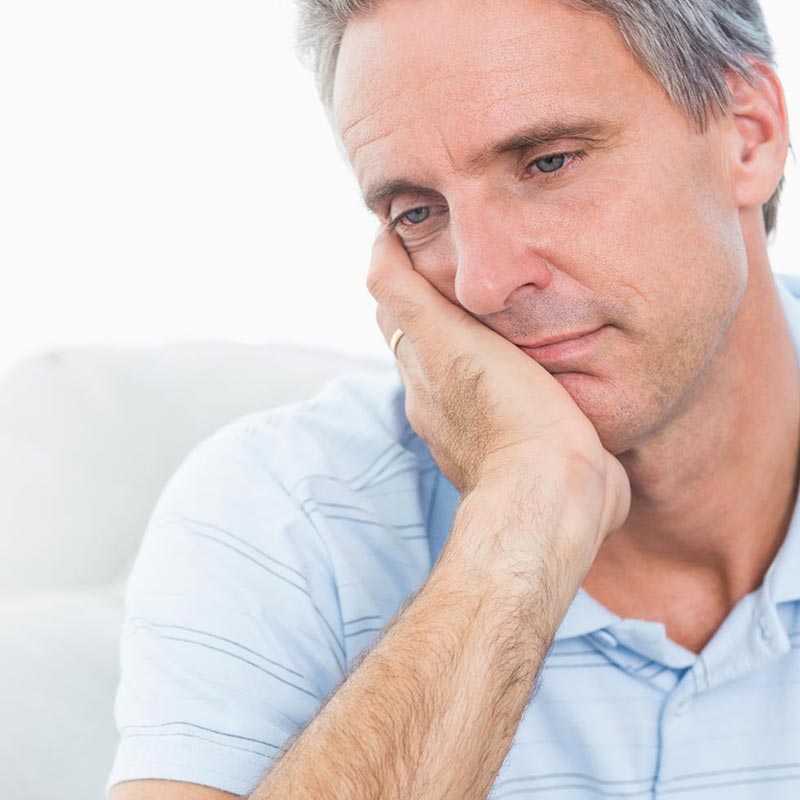Low Testosterone (Low T) Symptoms
As men age and enter Andropause, symptoms of low testosterone (Low-T) may begin during the early thirties or forties, and most often by 50 years old. Ranges of symptoms and the degree of severity will vary for each man per their natural body chemistry, overall health, and use of various medications.
Take a moment to learn about and better understand common low testosterone symptoms. Once you've reviewed, we invite you to take the next steps to live, look, and feel your best.

Low T Symptoms We Treat
Depression & Mood
Erectile Dysfunction
Hair Loss
Insomnia
Memory Loss
Osteoporosis
Sleep Apnea
Diminished Sex Drive
Fatigue
Hot Flashes
Irritability
Muscle Loss
Prostate Conditions
Weight Gain
Andropause Symptoms by Age
The ADAM Questionnaire
Have you had a decrease in libido (sex drive)?
Have you had a lack of energy?
Have you had a decrease in strength and/or endurance?
Have you lost height?
Have you noticed a decreased "enjoyment of life"?
Are you sad and/or grumpy?
Are your erections less strong?
Has there been a recent deterioration in ability to play sports?
Are you falling asleep after dinner?
Has there been a recent deterioration in work performance?
ADAM (Androgen Deficiency in the Aging Male) questionnaire: If you have answered yes to question 1 or 7 or any 3 other questions above, you may have low testosterone (Low-T). However, only a physician administered medical examination and blood test can determine if the symptoms you are experiencing may be due to low testosterone.
Take the Next Step

